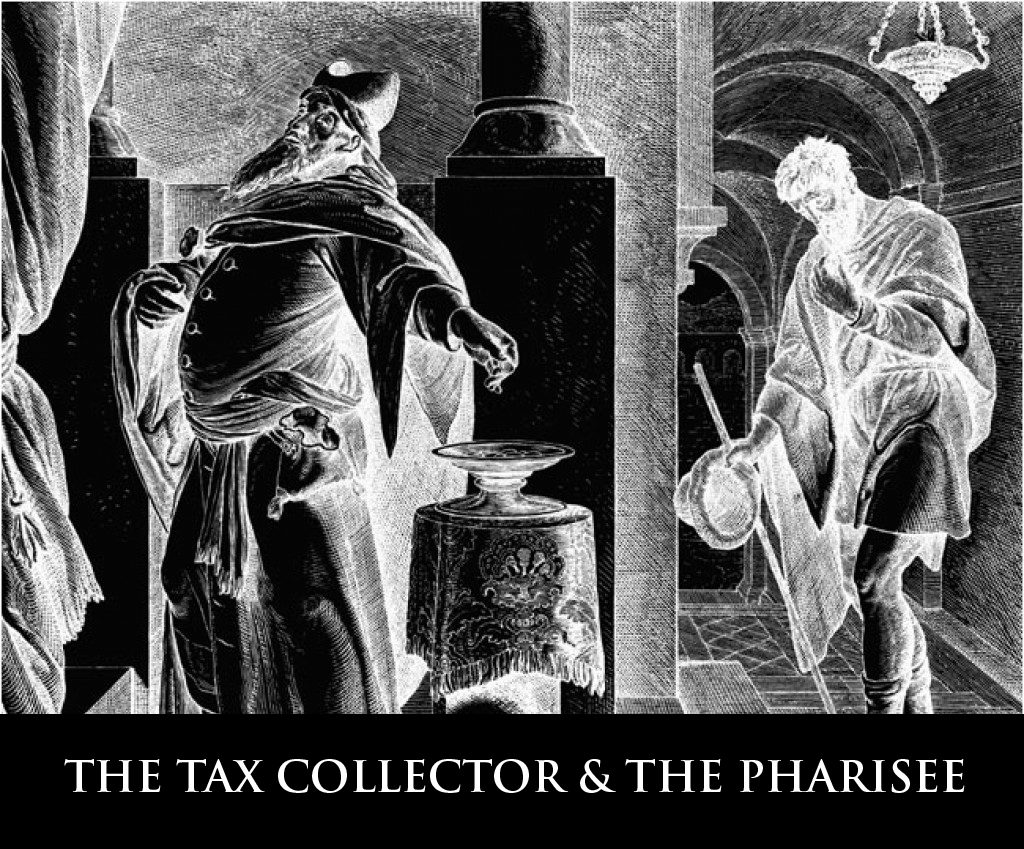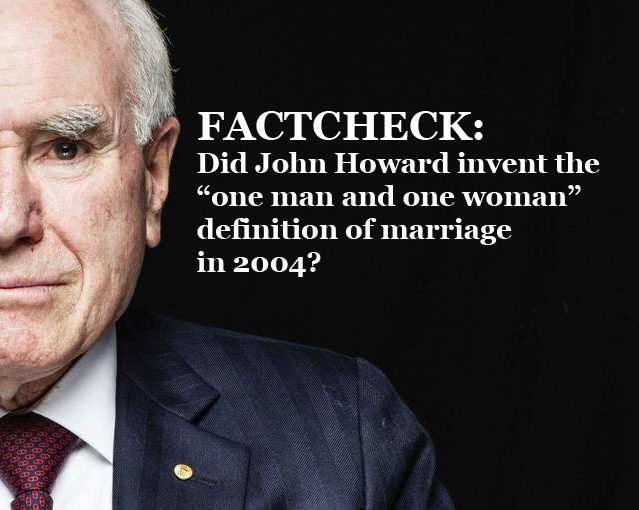
(Photo credit: MARK GRAHAM/AFP/Getty Images)
How God got into Parliament
Every day in Australia, the President of the Senate is required to open parliament by reciting the following words:
Almighty God, we humbly beseech Thee to vouchsafe Thy special blessing upon this Parliament, and that Thou wouldst be pleased to direct and prosper the work of Thy servants to the advancement of Thy glory, and to the true welfare of the people of Australia.
Our Father, which art in Heaven, Hallowed be Thy name. Thy kingdom come. Thy will be done in earth, as it is in Heaven. Give us this day our daily bread. And forgive us our trespasses, as we forgive them that trespass against us. And lead us not into temptation; but deliver us from evil: For thine is the kingdom, and the power, and the glory, for ever and ever. Amen.
The inclusion of these words were added in 1903 after a petition by the General Assembly of the Presbyterian Church of NSW, and apart from a slight amendment here and there, they have remained unchanged for 115 years.
Not that there hasn’t been opposition. The first motion for the prayer’s removal was put forward in 1997 by senator Bob Brown, the first leader of The Greens. More recently, Greens senators Richard Di Natale and Lee Rhiannon have taken up the cause.
Senator Lee Rhiannon initially raised her objections in 2003 on the 100 year aniversary of the prayer’s inclusion, but 15 years of trying hasn’t detered her. When she spoke to ABC Insider last year, she revealed that she was still very determined to see the prayer’s removal, saying, “It is actually insulting the way parliament is opened. Considering there’s many people who aren’t religious, there’s many people of different faiths, it is time we started having an institution that is relevant to the 21st century.”
Now, just a month or so before Rhiannon retires from politics, she is giving it one last go, and this time, The Greens might be successful. On the 27th of June 2018, Rhiannon announced:
“Today the Senate has supported a Greens motion requiring the Senate Procedure Committee to set up an inquiry into changing the Senate opening from a Christian prayer to an inclusive statement.”Â
The motion proposes that this “inclusive statement” should be the following:
“Senators, let us in silence pray or reflect upon our responsibilities to all people of Australia and to future generations.”
The Green’s motion also suggests that as they consider this change they should “consult with all senators” and “invite submissions and take evidence in public session”. So, if you feel passionately either way on this issue, I encourage you to get involved in the democratic process and voice your opinion! Write to your senators. Start a petition, if you like. Remember, it was a petition from Christians that got The Lord’s Prayer into the Senate over a century ago. Maybe you can be one of the voices that helps decide whether it stays or goes.
It may surprise you though… I actually agree with The Greens on this one.
Giving God Lip Service
Now, agreeing with them on this is not easy to admit (and not simply because I rarely agree with The Greens on many topics). If I’m honest, I really like those powerful words being read every day in Parliament. They describe God as Almighty and our Heavenly Father. They call out to God for help and provision, guidance and forgiveness. They refer to politicians as servants of God whose goal is to advance God’s glory, God’s kingdom and the welfare of the Australians they represent. These are all concepts that I deeply believe. I would truly love every politician to say and believe these words as they begin every day of public service. It warms my heart that these words are spoken in Parliament, but I suspect that is probably because I am a superficial human. As 1 Samuel 16:7 says, “man looks on the outward appearance, but the Lord looks on the heart.”
The reality is, whilst I would love for every politician to believe the words of the prayer that opens the Senate, I know most of them don’t. Now, some would argue that forcing non-Christians (if only the Senate President) to publicly recite the Lord’s Prayer every day may inspire them to be more humble and mindful of their Creator, but I don’t see any Biblical precedent for suggesting that. In fact, I think the bible consistently teaches the opposite. The outward expression of religious affection with no inward conviction doesn’t warm God’s heart. It turns His stomach.
One of the clearest expressions of this is found in the opening chapter of the book of Isaiah the prophet, where God expresses how deeply He hates the performance of hollow religious rituals.
“’What to me is the multitude of your sacrifices?’ says the Lord; ‘I have had enough of burnt offerings of rams and the fat of well-fed beasts; I do not delight in the blood of bulls, or of lambs, or of goats. When you come to appear before me, who has required of you this trampling of my courts? Bring no more vain offerings; incense is an abomination to me. New moon and Sabbath and the calling of convocations - I cannot endure iniquity and solemn assembly. Your new moons and your appointed feasts my soul hates; they have become a burden to me; I am weary of bearing them. When you spread out your hands, I will hide my eyes from you; even though you make many prayers, I will not listen; your hands are full of blood.'” (Isaiah 1:11-15)
When we read these strong words we must remember that God isn’t saying He hates the idea of the sacrificial system. He gave it to the people of Israel. No, He is saying that He hates hypocrisy. God expands this idea later in the book of Isaiah when He says:
“…this people draw near with their mouth and honour me with their lips, while their hearts are far from me, and their fear of me is a commandment taught by men.” (Isaiah 29:13)
In Matthew 15:7-9, when Jesus sees the religious hypocrisy of the Pharisees, he quotes this verse saying that Isaiah wasn’t simply talking about the people of his day, he was also prophesying about all types of religious hypocrisy.
I would argue that God’s words condemning religious lip service should also apply to the daily repetition of the Lord’s Prayer in parliament. The words are great. But that is all they are – words. In repeating this prayer, most of our politicians honour God with their lips, while their hearts are far from Him.
Now I am sure that there are politicians over the last 115 years that have prayed those words every day with an earnest humility. But I would think that any genuine Christian does not require their secular workplace (which the Senate is) to supplement their own private times of prayer. To have this prayer read at the daily opening of parliament suggests that the parliament itself believes these words. This is quite obviously not the case. At least not any more. We may have started off with a general Christian veneer over our society and parliament, but that veneer is quickly being peeled off.
I actually think that may be an important process for the West to go through. As the cultural Christianity is peeled away, the genuine church has an opportunity to shine. Like many Christians, I do feel a deep grief in admitting that many of my friends, family members, colleagues and neighbours do not love Jesus or know God as their Heavenly Father as I wish they did. I do worry for our nation as the Christian worldview becomes more and more alien. But we should not put our energy into gluing back on a Christian veneer that is cracked and peeling. We don’t help our nation become more “Christian” by forcing the daily recitation of Christian prayers by non-Christian Senate Presidents. People become followers of Christ by hearing the gospel in the mouths and seeing it in the lives of genuine Christians.
Pray then like this
The more I hear some prominent Christians present their argument for why The Lord’s Prayer should remain in parliament the less I am convinced. The Australian Christian Lobby for example, describes the Lord’s Prayer as “an important part of Australia’s cultural heritage” with the ACL managing director Lyle Sheldon suggesting “prayer in parliament recognises western cultural heritage”.
This view treats the reading of The Lord’s Prayer like an ancient religious artifact in a museum that is deserving of protection due to its historic significance. It was never meant to be treated like this.
If you go back to where Jesus actually introduced his disciple’s to the words of The Lord’s Prayer, you see that he gave it – not as a formula or words to be repeated for public religious theatre – but as an example of how his followers ought to pray in private.
“And when you pray, you must not be like the hypocrites. For they love to stand and pray in the synagogues and at the street corners, that they may be seen by others. Truly, I say to you, they have received their reward. But when you pray, go into your room and shut the door and pray to your Father who is in secret. And your Father who sees in secret will reward you.
And when you pray, do not heap up empty phrases as the Gentiles do, for they think that they will be heard for their many words. Do not be like them, for your Father knows what you need before you ask him.Â
Pray then like this: Our Father in heaven, hallowed be your name. Your kingdom come, your will be done, on earth as it is in heaven. Give us this day our daily bread, and forgive us our debts, as we also have forgiven our debtors. And lead us not into temptation, but deliver us from evil.” (Matthew 6:5-13)
You can see from this passage, these words of Jesus were possibly never meant to be used as an official prayer. Jesus wasn’t prescribing for us exactly WHAT we should pray – he was teaching us HOW we should pray. And the contrast between Jesus’ teaching and the way that his words are daily recited in parliament couldn’t be clearer.
Jesus tells his followers they must not pray like a hypocrite. They must not pray just for the outward show of a religious observance. They must not heap up empty phrases over and over as if God will be impressed by their many words. Rather, Jesus tells us that when Christians pray they should go in their room, shut the door and talk one on one with their Heavenly Father.
Now, I do think there is a place for public prayer (see John 11:41-42 for example), but generally, prayer is not for others to hear. It’s not even for God to hear, as Jesus teaches us that God already knows what we need. Prayer is for the fostering of intimate communion between a child of God and their Heavenly Father. It is an act of private Christian dependence, not public secular performance.
Our Father and Theirs
It does grieve me that our culture is becoming less prayerful. It does sadden me that there seems to be a push by some to remove the expression of great Christian truths from the public sphere.
But more than this, it saddens me what The Lord’s Prayer has become.
It was never meant to be used as a political tool in the culture wars. It was never meant to be treated as merely a symbol of our Christian heritage.
These precious and intimate words were given by Jesus to his disciples for so much more than to protect us from the slippery slope of secularism… So let’s not waste time fighting to save our culture by keeping The Lord’s Prayer in parliament. Rather, let us prayerfully go out into our culture and share the good news about Jesus, so that in Christ our fellow citizens can come to know that “Our Father in Heaven” can be their Heavenly Father as well.
(221)














